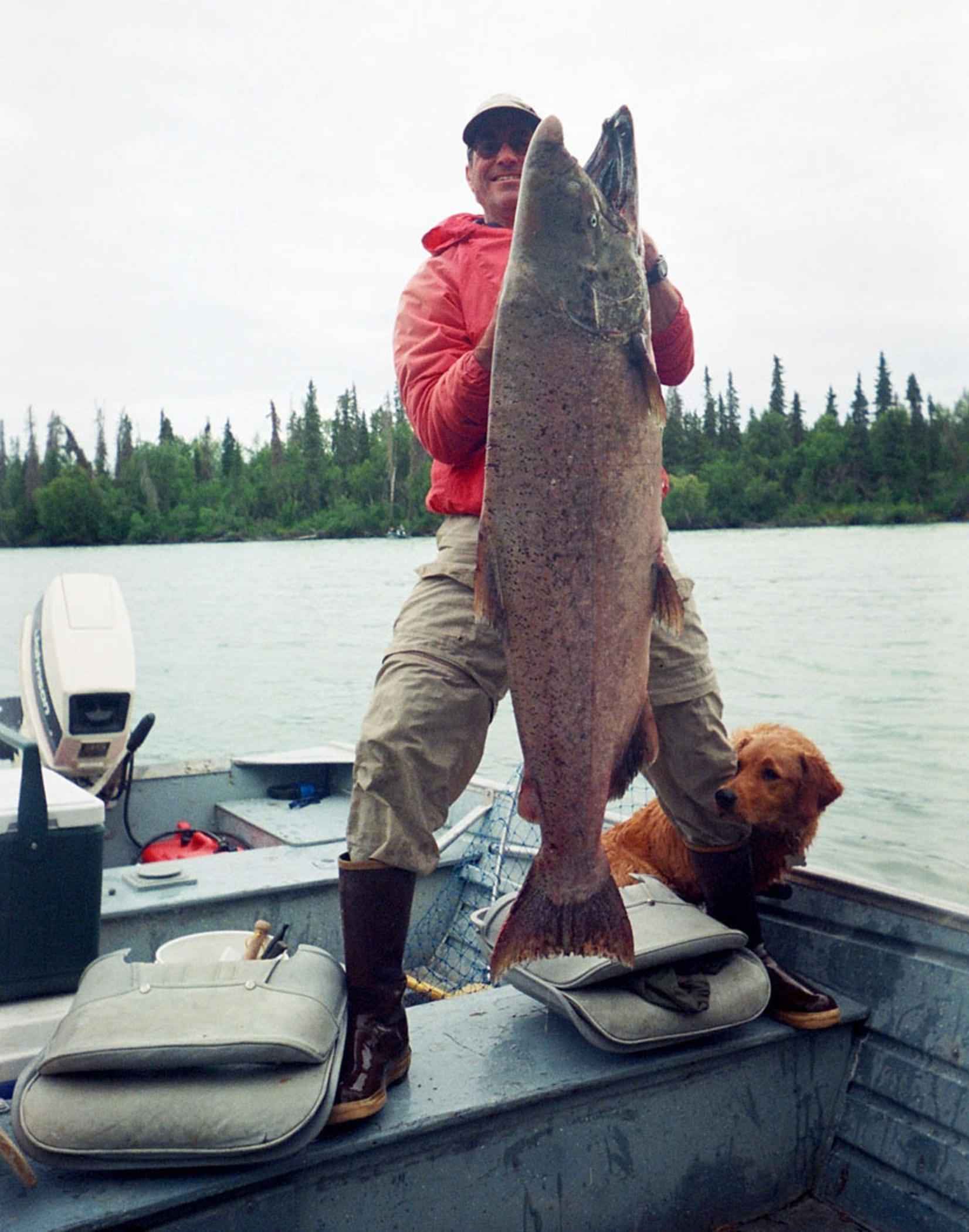An angler boasts an 80-pound Kenai River king. These fish are becoming much more rare thanks a number of factors in the drainage. Wikipedia file photo.
Many have heard about declining king salmon stocks throughout Alaska in recent years. The world-renowned Kenai River has also seen a decline in larger stocks, the 6- and 7-year-old fish for which the river is famous. Those are the 70- and 80-pound monsters that were regularly landed as few as eight or 10 years ago.
With king salmon fishing on the river just getting underway for the season, there is reason for hope. Initial returns are well ahead of the last four years, with 600 more kings in-river than at the same time last year, and 1,500 more than at this time in 2015.
Many anglers applauded the Alaska Board of Fisheries, who this year instituted various conservation measures aimed at older fish and at the first run of kings in the river, which return at much lower numbers than the late-run fish.
First, escapement goals were adjusted, to be based on large kings, 33-inches or more in length, which are much more easily identified by Alaska Department of Fish and Game sonar. There were also restrictions on bait and initially a size restriction of 36-inches for the entire river until June 30, and for the middle river until the end of July, when the season ends. This week, however, with the increase in king numbers the Alaska Department of Fish and Game raised the size restriction to 46-inches. This is a move that concerns many in the angling community, who would prefer the department wait and see where the numbers go.
While the recent changes by the Board of Fisheries are to be lauded, raising the size restriction prematurely has many worried that we may be repeating the mistakes we have made in the past. Talk about protecting these fish has gone on for decades. The embedded video was aired in 1984 and illustrates many of the issues still in play to this day. Only the clothes and the haircuts are different.
Oh yes, and the fishing.
—Dave Atcheson



